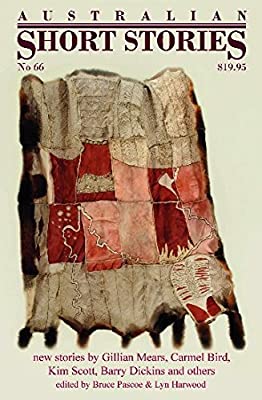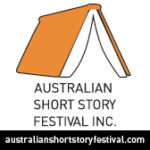Interview with editors of Australian Short Stories, Bruce Pascoe & Lyn Harwood.
by Suzanne Masri
On what basis did you select the stories in the collection? For example, was there a theme?
For the latest ASS we were very keen to include as many indigenous writers as possible.
What was the most challenging aspect in finding, compiling and editing the stories?
Time is currently our biggest challenge. This includes all aspects: inviting and receiving stories, reading and editing, proofing and correcting.
I note that ASS was published regularly over a number of years and then there was a period of 18 years where the collection was not published. Would you be happy to speak to the reasons why the collection stopped being published and how/why you started it again?
Editing ASS was a huge commitment. Bruce and I read in excess of 100 stories a week. After 13 years we needed to earn more money. The time commitment needed to read, edit and proof each issue did not give us time to work for a living. Continuing ASS was in response to the lack of any comparable magazine. Sad to see young writers languishing from the want of a forum.

Australian Short Stories no. 66 edited by
Bruce Pascoe and Lyn Harwood
Are the stories chosen purely based upon the content or do you like to have a spread of emerging and established authors, or do you have other criteria?
The quality of the writing was always paramount. We always tried to get a spread of writers from around Australia, men and women, new and emerging and indigenous writers. Also, we did a number of special editions focusing on youth, women and indigenous writers.
Have the issues and stories changed in obvious ways across the years? If so, what stands out to you about the stories and authors published in the past, as opposed to the most recent edition?
Good writing concerns life. Sometimes the style responds to fashion but at the end of the day, stories must touch you.
Is there a particular story that resonates with you or that you found particularly affecting? If so, why?
We produced two Collected Editions which included our favourites. Sometimes you can read a story over and over and it still moves you, and it still has something to say to you. This is a good story. There are many in such a long publishing history. You know it when you pick up a book and trust your senses to the writer….’I am in the safe hands of an artist’.
When will the next edition be published?
As soon as we have enough stories to make a good edition. It is harder now as our flow of stories has stopped. Each story must be sought.
What would your advice be for writers of short stories?
As in any art form, you must just do it. And do it and do it. Practising your art leads to better art. Have faith that your passion, your practise and your discipline will have results even if it is only you that appreciates it.
This interview was conducted by a hardworking undergraduate student at Swinburne University.




